CURRICULUM VITAE Roger L. Miesfeld, Ph.D. Professor ...
CURRICULUM VITAE Roger L. Miesfeld, Ph.D. Professor ...
CURRICULUM VITAE Roger L. Miesfeld, Ph.D. Professor ...
Create successful ePaper yourself
Turn your PDF publications into a flip-book with our unique Google optimized e-Paper software.
R. L. <strong>Miesfeld</strong> 10/12/13<br />
RESEARCH INTERESTS<br />
Mosquitoes are human disease vectors that transmit pathogens through blood feeding. One of these<br />
disease vectors is the Aedes aegypti mosquito, which have rapidly expanded their habitat and are<br />
contributing annually to 500,000 cases of Dengue hemorrhagic fever. On an even greater scale,<br />
Anopheline mosquitoes account for 250 million cases of malaria/yr, with up to 1 million deaths annually.<br />
The most common adult insecticides used for mosquito control are pyrethroids, which inhibit<br />
evolutionarily conserved sodium channels in the mosquito nervous system. Although these compounds<br />
have proven to be effective, mosquito resistance is an increasing problem and there is a pressing need to<br />
develop the next generation of safe and effective agents. Since blood meal feeding creates a unique<br />
metabolic challenge as a result of the extremely high protein and iron content of blood, it is possible that<br />
interfering with blood meal metabolism could provide a novel control strategy for mosquito born diseases.<br />
Our long term goal is to identify small molecule inhibitors that block blood meal metabolism in vector<br />
mosquitoes, resulting in feeding-induced death of the adult female, or a significant reduction in egg<br />
viability, as a strategy to control vector mosquito populations in areas of high disease transmission.<br />
Overview of blood meal metabolism in Aedes aegypti mosquitoes. Newly emerged female<br />
mosquitoes feed on nectar for several days until they are able to take their first blood meal. The blood<br />
meal is required for Ae. aegypti egg development and results in the deposition of ~100 fertilized eggs<br />
within ~60 hours of feeding. In order to produce this many eggs, blood meal metabolism requires efficient<br />
retrieval of nutrients and rapid excretion of toxic ammonia. A female Ae. aegypti female mosquito weighs<br />
~2.5 mg and can consume a blood meal of 2 µl in ~60 seconds. The blood meal is equal in mass to her<br />
own body (including the water, protein, and lipid). This would be equivalent to a 125 lb women drinking a<br />
12 gallon smoothie that contains 25 lbs of hamburger meat, 0.5 lb of butter, and 2 tbls of sugar. Can you<br />
imagine not only drinking this mega smoothie in less than a minute, but completely digesting it, and then<br />
excreting all of the toxic waste products in just 24 hours The female Ae. aegypti mosquito does this up<br />
to five times in her lifetime, resulting in the production of 500+ mosquito eggs over a two week period.<br />
Role of COPI vesicle transport in blood fed mosquitoes. Based on recent data showing that COPI<br />
vesicle transport is involved in cellular processes beyond Golgi-ER retrograde protein trafficking, we<br />
disrupted COPI functions in the Dengue mosquito Ae. aegypti to interfere with blood meal digestion.<br />
Surprisingly, we found that decreased expression of the ©COPI coatomer protein led to 89% mortality in<br />
blood fed mosquitoes by 72 hr post-feeding, compared to 0% mortality in control dsRNA injected blood<br />
fed mosquitoes and 3% mortality in ©COPI dsRNA injected sugar fed mosquitoes. Similar results were<br />
obtained using dsRNA directed against five other COPI coatomer subunits. We found that COPI defects<br />
disrupt epithelial cell membrane integrity, stimulate premature blood meal excretion, and block induced<br />
expression of several midgut protease genes. In order to study the role of COPI transport in ovarian<br />
development, we injected ©COPI dsRNA after blood feeding, and found that while blood digestion was<br />
normal, follicles in these mosquitoes were significantly smaller by 48 hr post-injection and lacked eggshell<br />
proteins. Together, these data show that COPI functions are critical to mosquito blood digestion and egg<br />
maturation, a finding that could also apply to other blood feeding arthropod vectors.<br />
Identification and characterization of next generation mosquitocides. We have used a highly<br />
efficient RNAi knockdown strategy to interrogate biochemical processes in blood fed Ae. aegypti<br />
mosquitoes. Based on our recent finding that blood fed vector mosquitoes are extremely sensitive to<br />
defects in COPI vesicle transport, but not COPII or clathrin vesicle transport, we initiated two new<br />
projects aimed at developing small molecule inhibitors of the mosquito COPI vesicle transport system.<br />
One of these projects investigates the biochemical role of the COPI regulatory proteins GBF1, Arf1, and<br />
Arf4 in controlling COPI processes in midgut, fat body, and ovary tissues to elucidate the underlying<br />
mechanisms of GBF1 regulatory functions in blood meal metabolism. A second project focuses on<br />
chemical synthesis and biochemical characterization of novel GBF1 inhibitors related to golgicide A<br />
(GCA), which could eventually be combined with other COPI inhibitors to mediate blood-feeding induced<br />
mortality. We propose that the unique dynamics of blood meal metabolism will permit effective disruption<br />
of the gonotrophic cycle in mosquitoes at much lower inhibitor concentrations than needed to interfere<br />
with homeostatic metabolism in non-target organisms.<br />
6



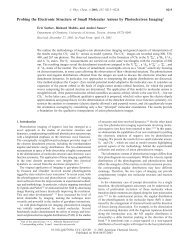
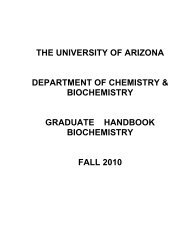
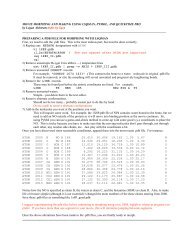

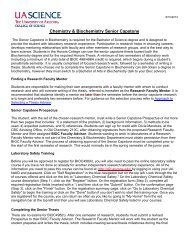
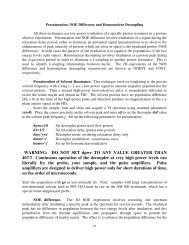
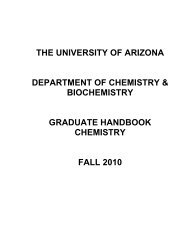
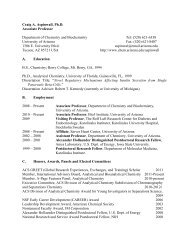
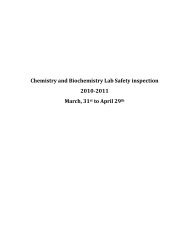
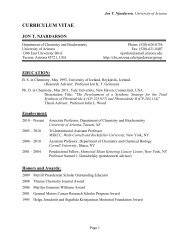
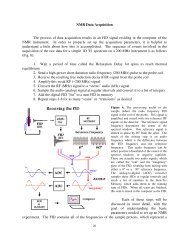
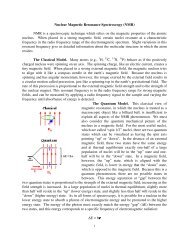
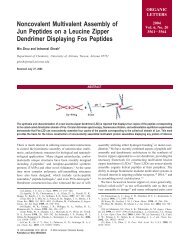
![Program [pdf] - Department of Biochemistry and Molecular ...](https://img.yumpu.com/8309921/1/167x260/program-pdf-department-of-biochemistry-and-molecular-.jpg?quality=85)